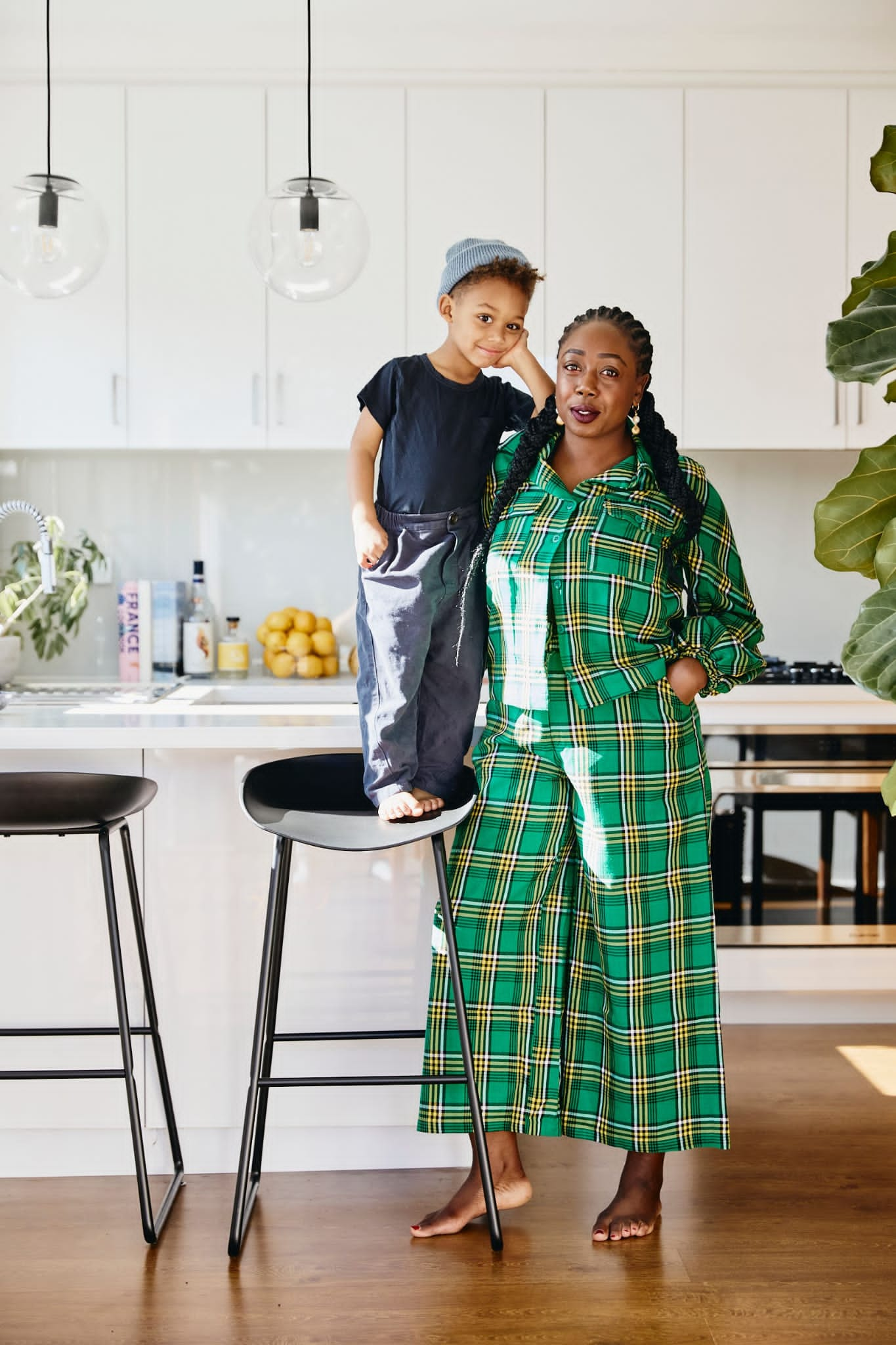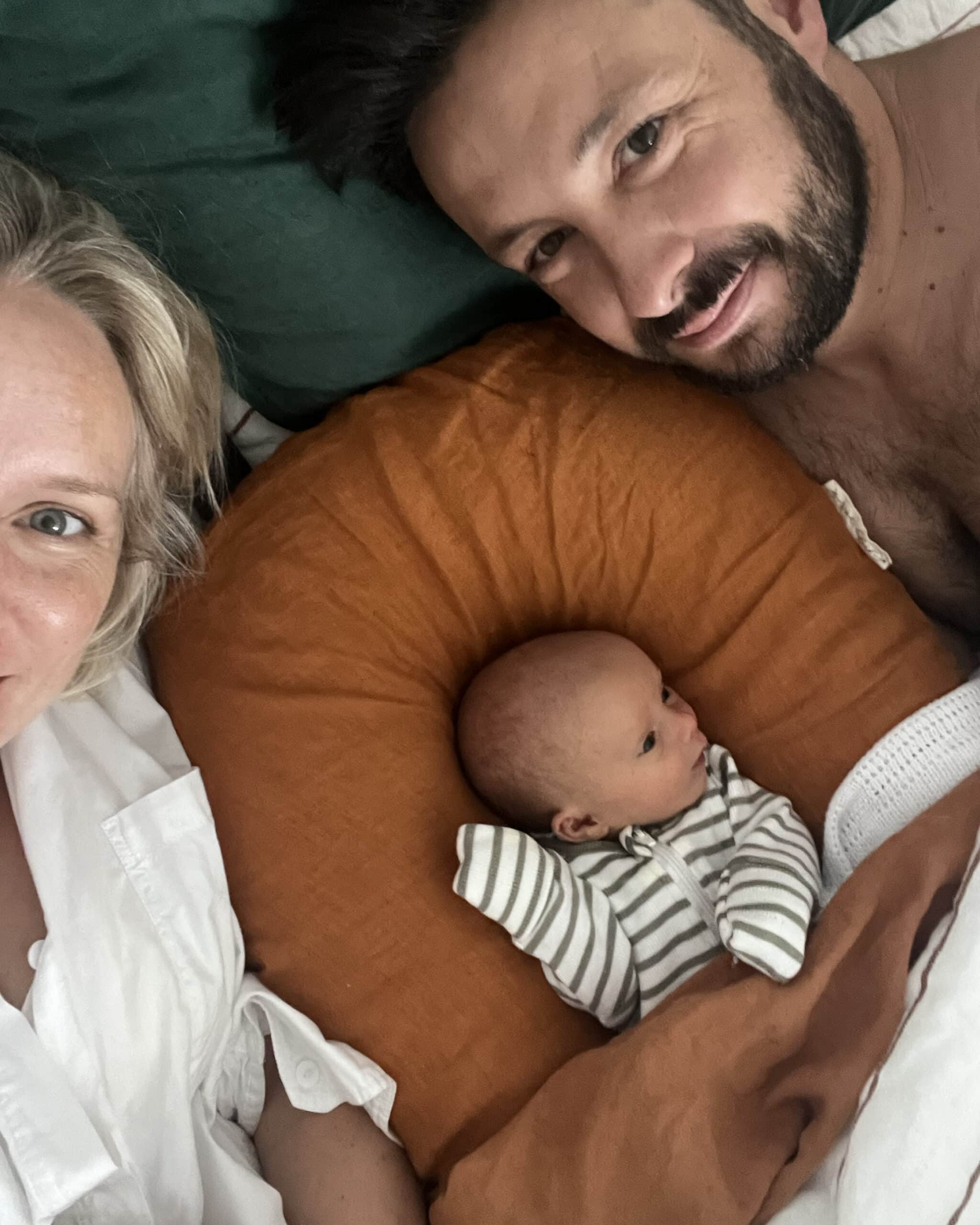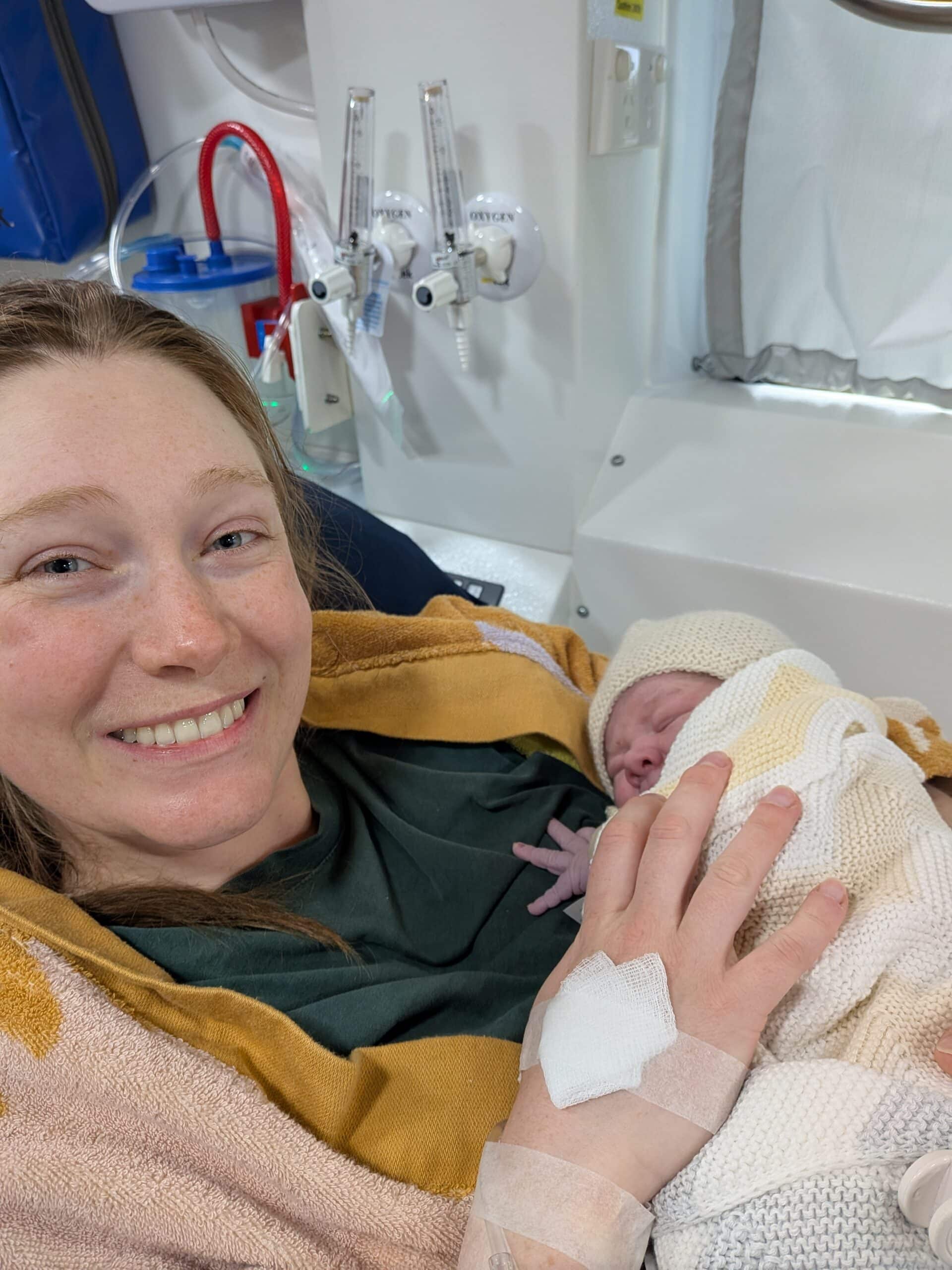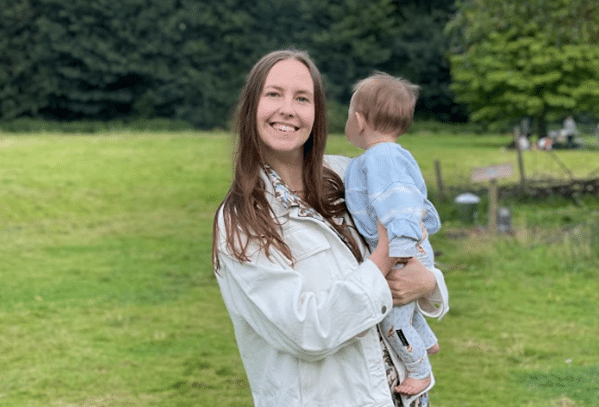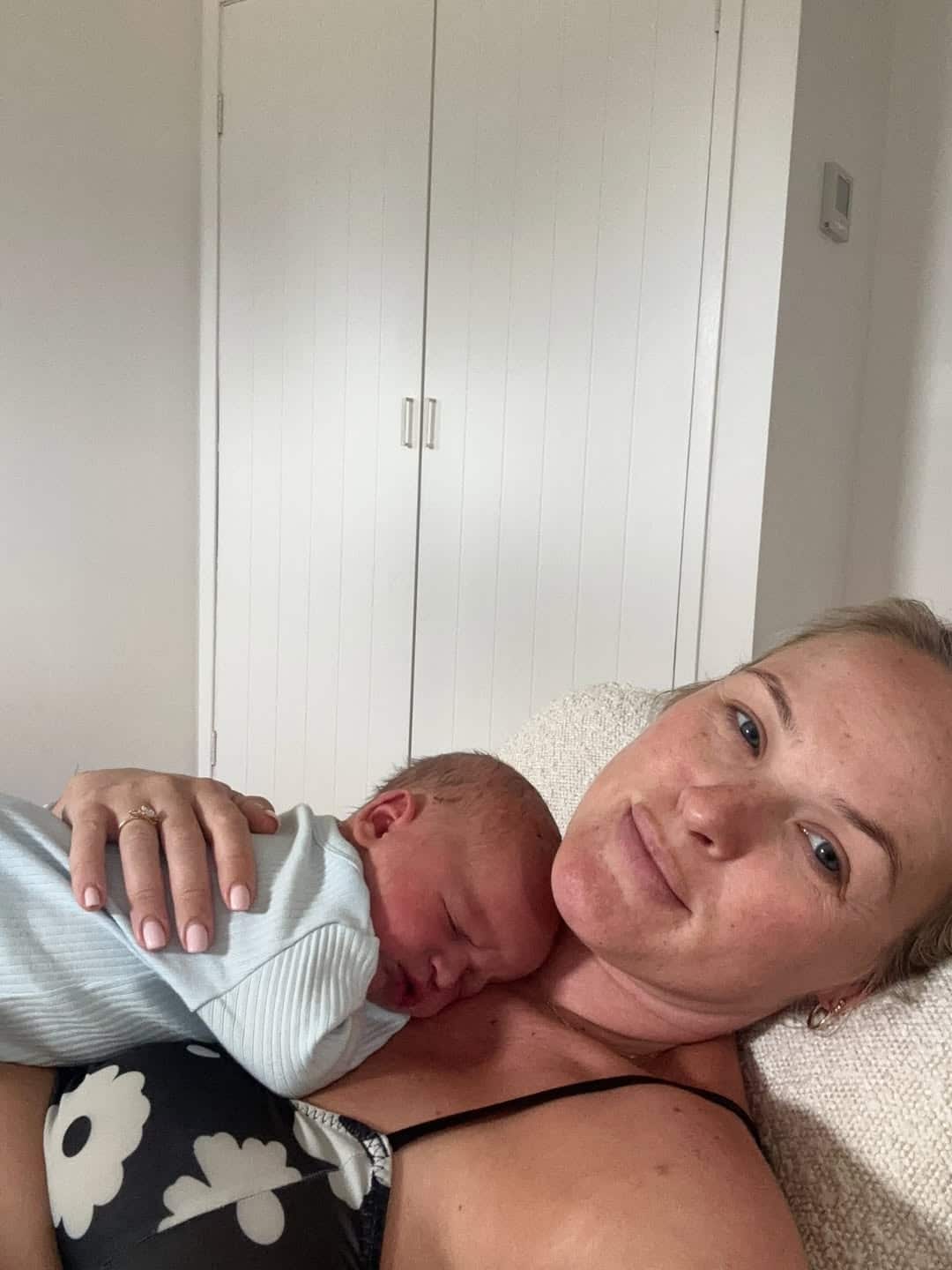Podcasts Rachael – spinal muscular atrophy, genetic carrier screening, maternal-assisted caesarean
EPISODE 443
Rachael – spinal muscular atrophy, genetic carrier screening, maternal-assisted caesarean
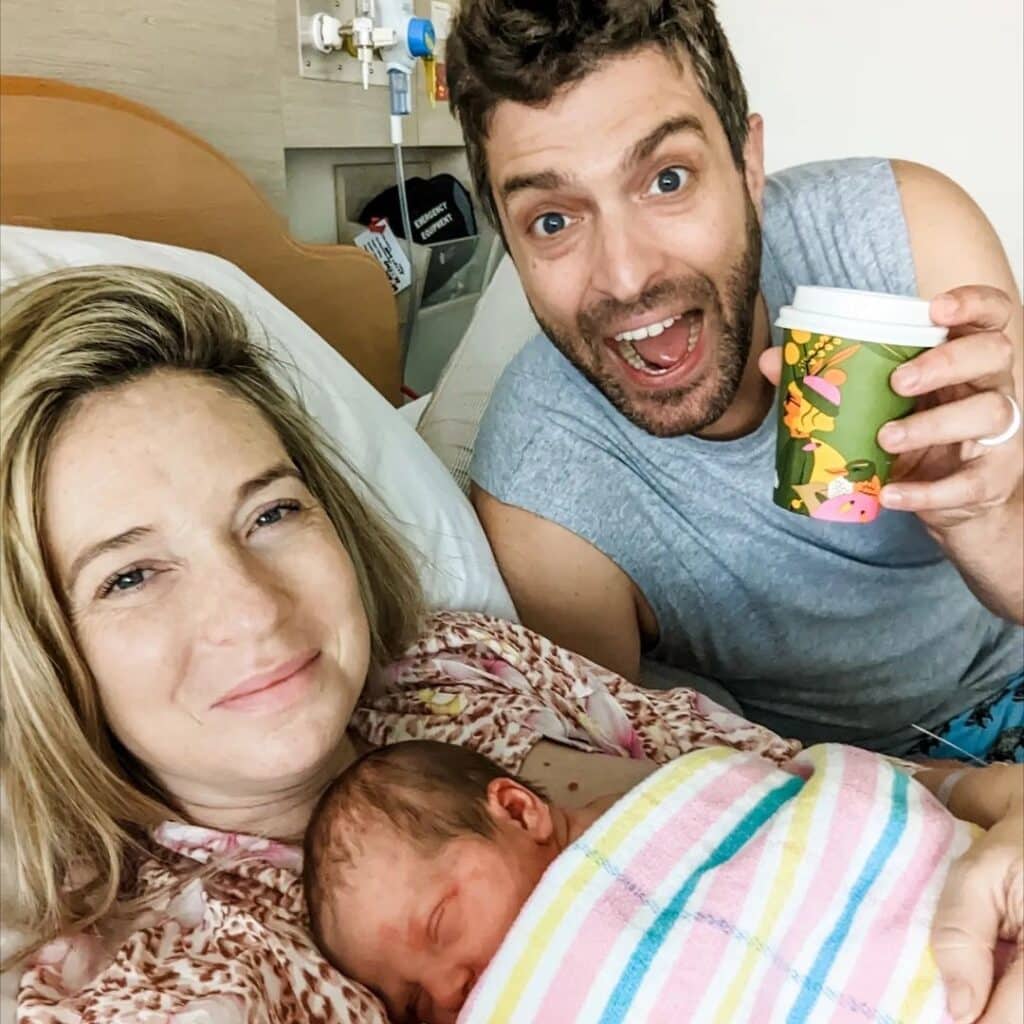
“My first daughter, Mackenzie, passed away from spinal muscular atrophy (SMA) when she was seven months old. We went on to have nine rounds of IVF stimulations, seven early miscarriages and we had to terminate two babies at 16 weeks for medical reasons – a little girl named Bella and a little boy named Leo. They were gut wrenching, horrific, cruel years. We went on to have Zac who is two-and-a-half now via IVF and our little miracle baby Joshua who is eleven months old.
“When we discovered that Mackenzie had a terminal diagnosis she was ten-weeks-old and we had a lot of questions about why it happened to us. As we went on we discovered a lot of statistics that worried us for other parents and angered us for the journey we were on. We found out that everyone carries, on average, 3-5 genetic conditions in our DNA so we all have a risk of passing on conditions to our children depending on who we had a baby with. It’s a simple cheek swab but it was previously only offered to people who had a family history of it. We found out that four out of five children born with a genetic condition actually have no family history of it. We wanted everyone to be offered genetic carrier screening and while it was available privately, it was costly, between $500-$2500 depending on how many tests were done. So we campaigned for the government and they agreed to a 20 million dollar research project called Mackenzie’s Mission in which 10,000 couples were coupled and enquired about the ethics, practicalities, how to do it through the labs.
“From the start of November this year, the three most common genetic conditions – cystic fibrosis, fragile x and spinal muscular atrophy – can be tested anywhere in Australia for free. It’s a big step forward but we’re not done yet; our hope is that we can include a thousand conditions in that screening. The conditions we are screening are life threatening and life limiting; we’re not talking about conditions that we can live with and can be treated.
“We need more GPs to know that it’s best practice and is in the guidelines. The offshoot of Mackenzie’s Mission is LUMI health where you can go on the website and request a cheek swab and if you’re high risk, a genetic counsellor will call you.
“When we found out we were pregnant with Zac we were happy but we had also had so many positive tests that ended in miscarriages or chemical pregnancies. I felt like I kept pregnancy test companies afloat during my many years of IVF. Unfortunately we didn’t feel security around Zac’s pregnancy for quite some time. With Leo, he was an IVF pregnancy and a genetically-tested embryo and we knew there was a percentage of inaccuracy with the testing. We did an extended NIPT with Zac’s pregnancy and we did a CVS at 12+5 weeks so it wasn’t until about 15 weeks that we knew he was healthy. I really didn’t feel like I could be pregnant till halfway through the second trimester. I managed my mental health by taking it day by day. I was seeing a psychologist, I was on medication, I was in fight or flight for about six years. It felt like we got another piece of bad news every day for years and years.
“I was torn between giving Zac all the love I had for him and disconnecting to protect myself from the pain. I love being pregnant – not that my pregnancies have always been easy – but I just love the experience. I felt a lot of guilt for Mackenzie because I felt like I really wanted another child. When your child dies, I don’t know how anyone is supposed to survive that because I just kept waiting for the world to swallow me up. How do you survive? How are you supposed to survive without your child? And you feel like you need another baby in your arms because you know that feeling of being a parent but then there’s such guilt. It’s very complex and it weaves in and out. You always hear that two things can be true but I think 15 things can be true; I can be pulled in fifteen different directions.
“Whenever someone asks me what they can do for parents who have lost a child, it’s say their name, turn up for them, just be there, don’t walk away or be afraid. It’s just love and who doesn’t want to talk about someone they love, what parent doesn’t want to talk about their child?
“I couldn’t feel attached to Zac till I was holding him. I wanted initially to have a VBAC but when discussing it with my obstetrician, he talked about the risks involved. The idea of elevating the risk and if something went wrong, and I knew about the risks and had chosen that path anyway…I didn’t want my birth idealisations to add any additional risks. We opted for a planned caesarean at 38+3 weeks. Once we got to the hospital, Johnny was so excited and I just cried and cried. I was calling for Mackenzie; I had her headband in my hair and I was trying to connect with her.
“Johnny and I refer to Mackenzie as ‘chicken’ – it’s just something we call her and we say it most days. I was crying and the anaesthetist was talking to me gently and trying to calm me. I was in the anaesthetic bay and my obstetrician came around the corner and when he saw me crying he said: ‘Oh chicken, it’s going to be okay’ and from then on I instantly felt like she was there and I got calm and stopped crying instantly. It felt like things slowed down for us; we’d requested music, delayed cord clamping and skin-to-skin and we asked for quiet as he was born. He was crying when he was born and it was the best sound in the world.
“Zac looked like he came from a different family to Mackenzie. He had dark hair and a bigger nose. I was just so in love with him, I couldn’t believe we were finally there. I had a lot of anxiety over medical tests but it was during covid so we stayed in our little bubble in the hospital for five nights. We had a really great breastfeeding journey.
“It had taken us three or four years to get Zac and I was getting older, Johnny and I started talking about having another baby at six months postpartum. I started to slowly wean Zac at 10 months and then I got the hard news that I’d have to stop breastfeeding if I wanted to go back to IVF. We went for an appointment and we were just so concerned about the costs that we decided to try naturally so we had sex when I was ovulating and then freaked out the next day thinking we would have to terminate another pregnancy. We went back to IVF and a week later discovered that we had conceived naturally so we started the process of the NIPT and CVS and we found out at 15 weeks that he was healthy. I honestly thought there was no chance this baby was healthy; I wasn’t feeling positive.
“I decided late in the pregnancy to have a maternal assisted caesarean and I opted not to have gloves on which my obstetrician agreed with. My OB lifted Joshua out and I put my hands under his arms and lifted him and I just experienced a surge of power and it was so healing. I didn’t want him to be taken off my chest and once he was on me he stayed there for four hours; I got my golden hour and he did the breast crawl.”
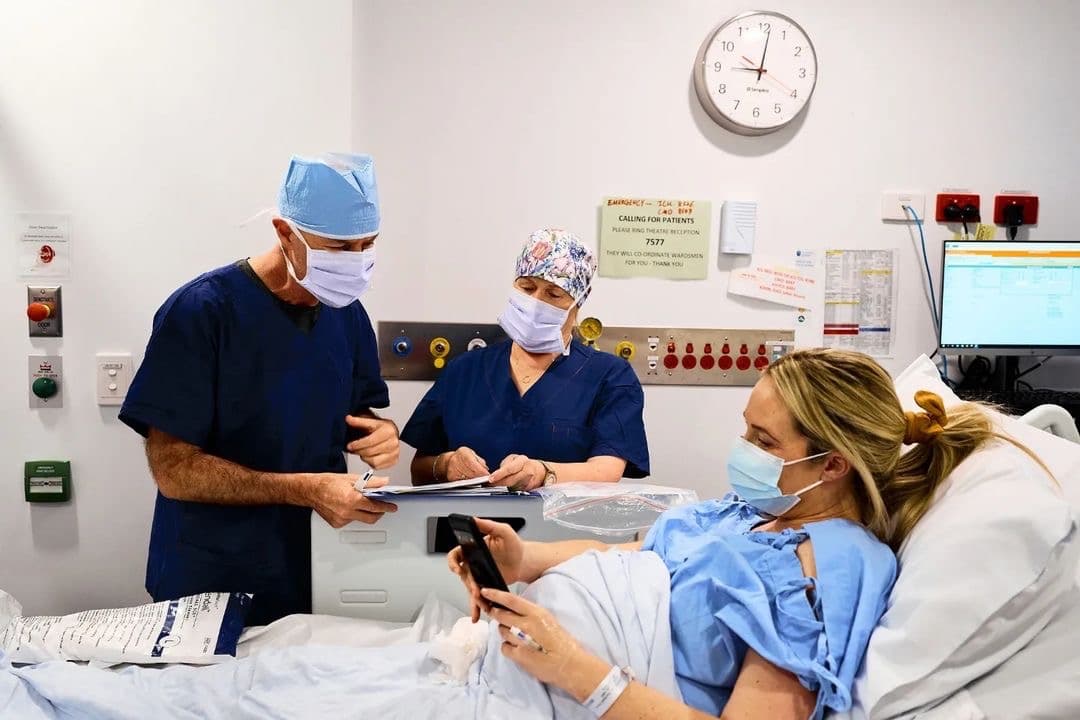
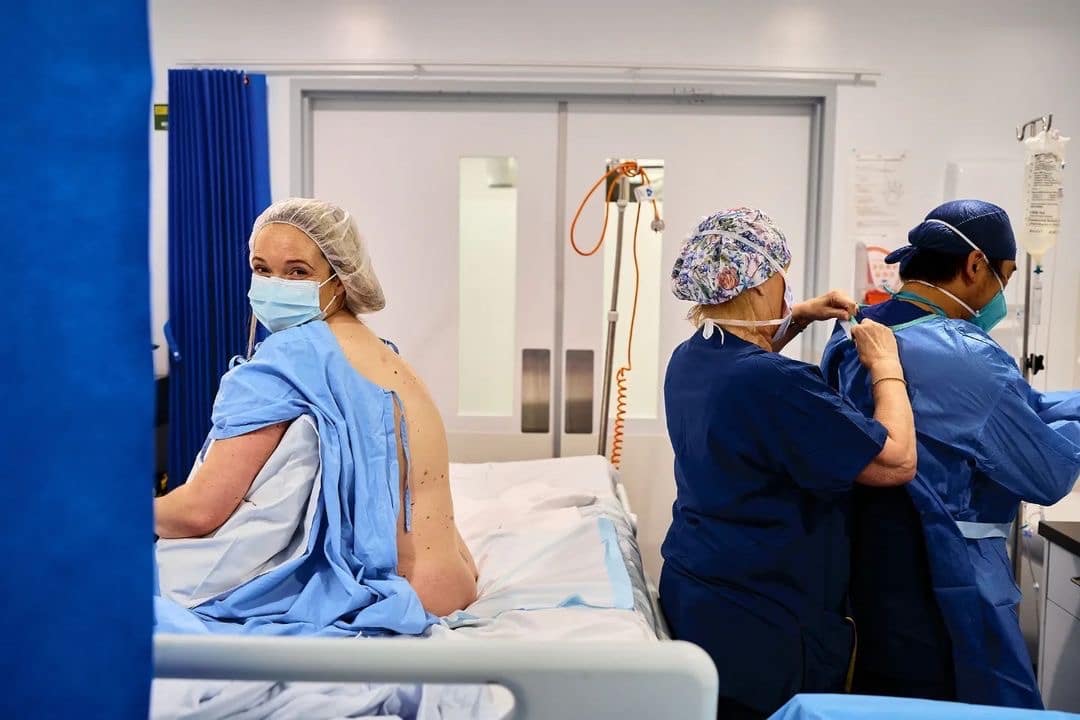
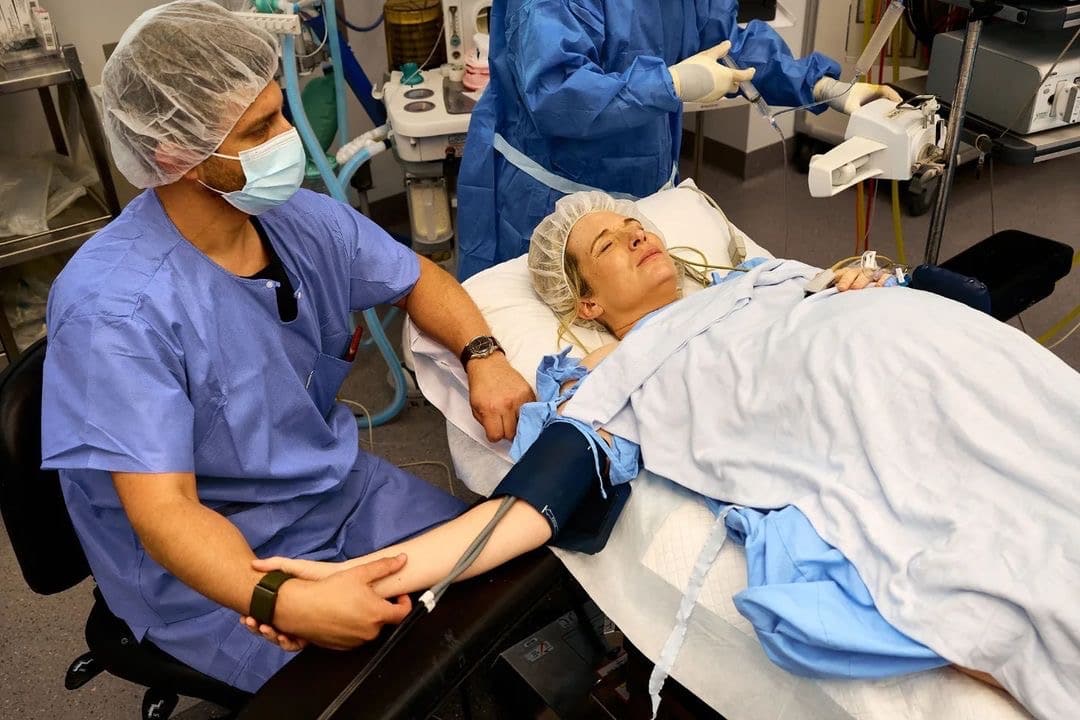

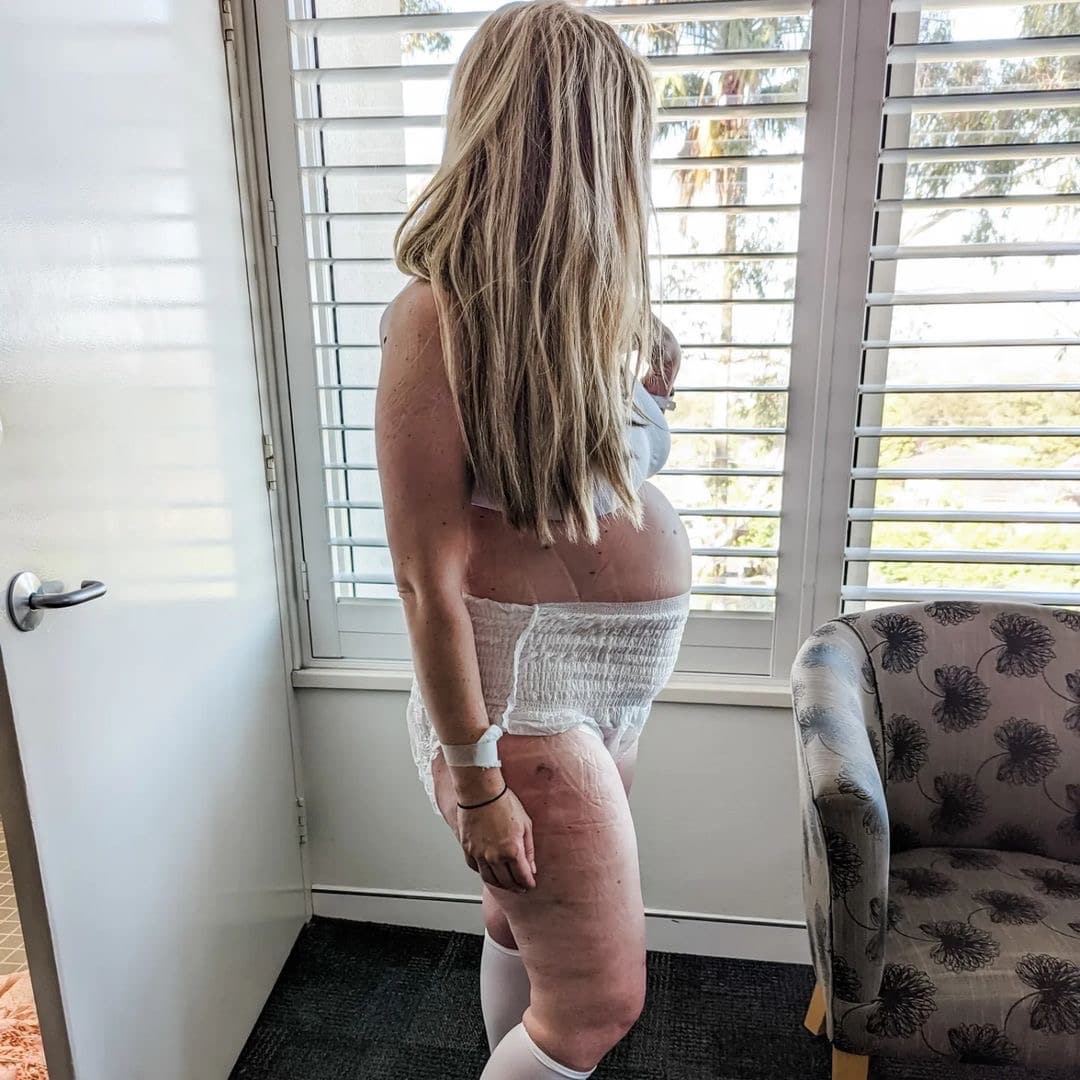
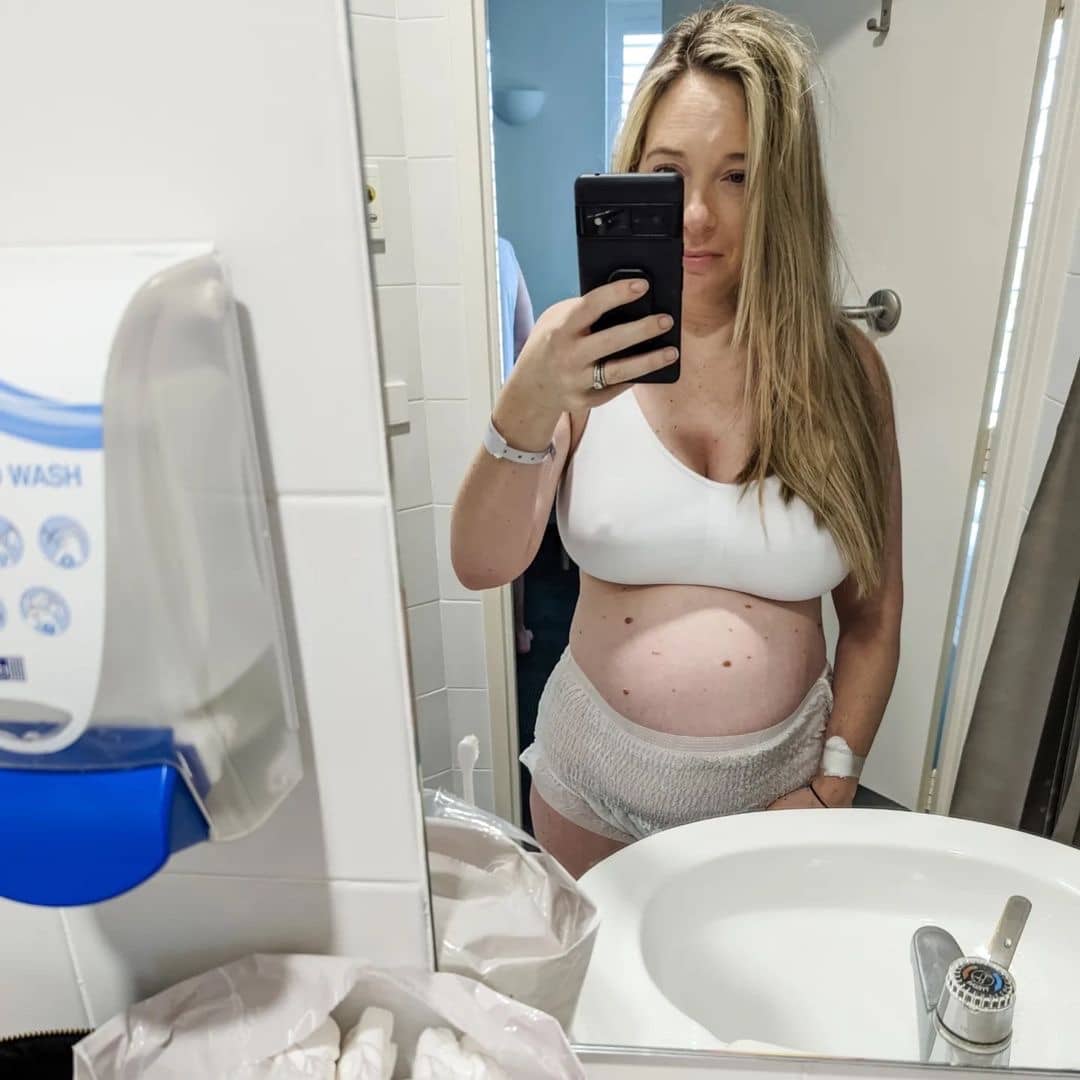
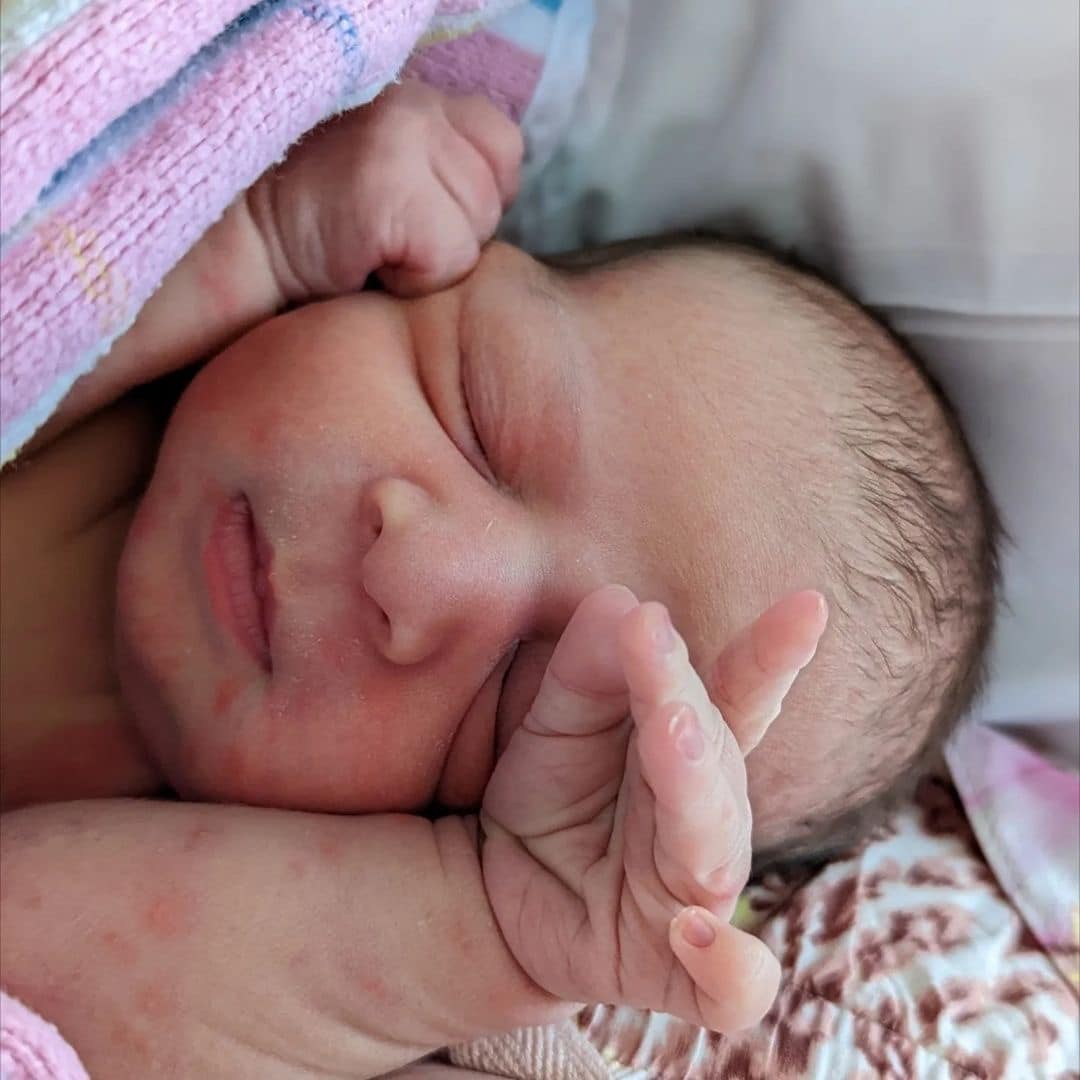
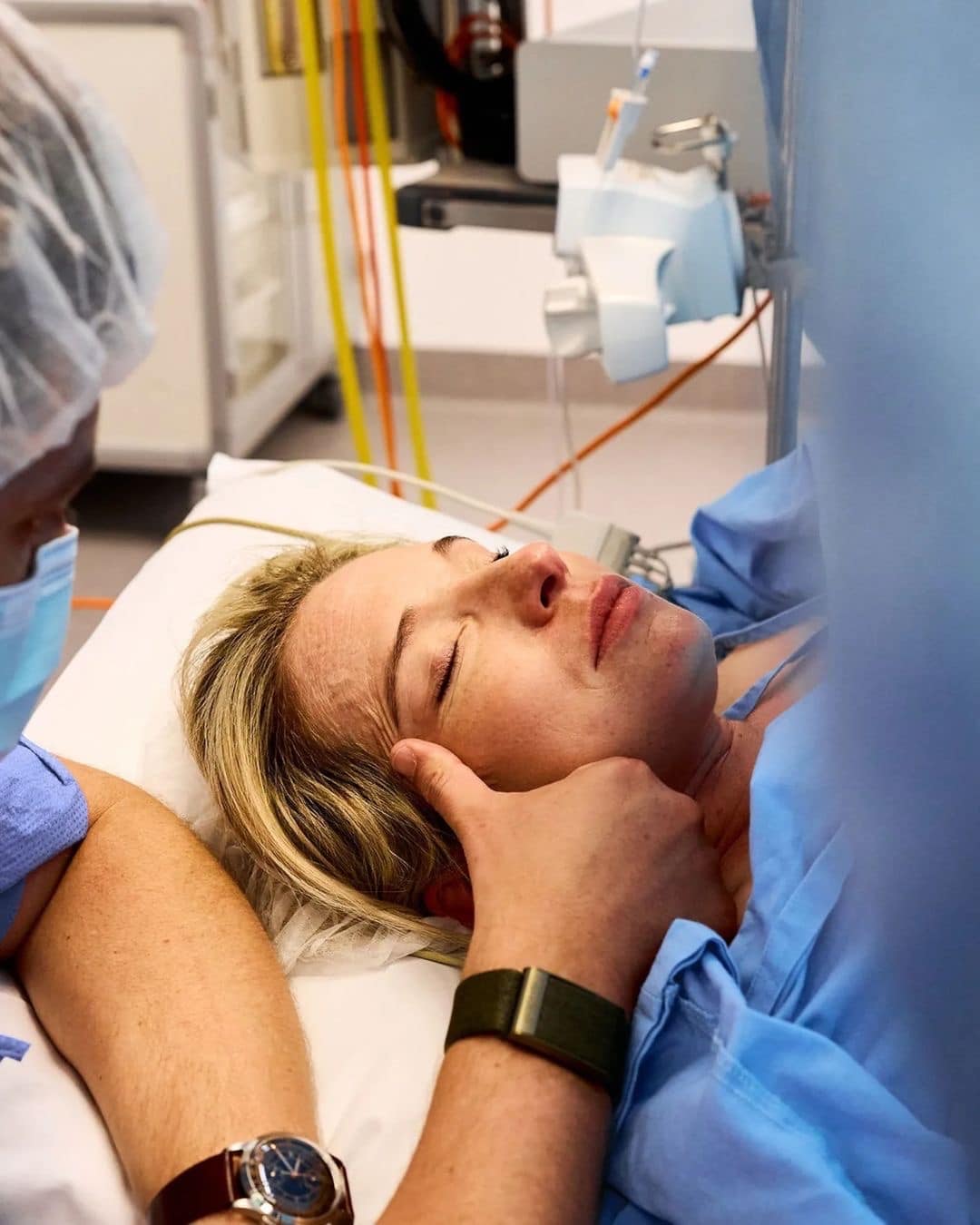
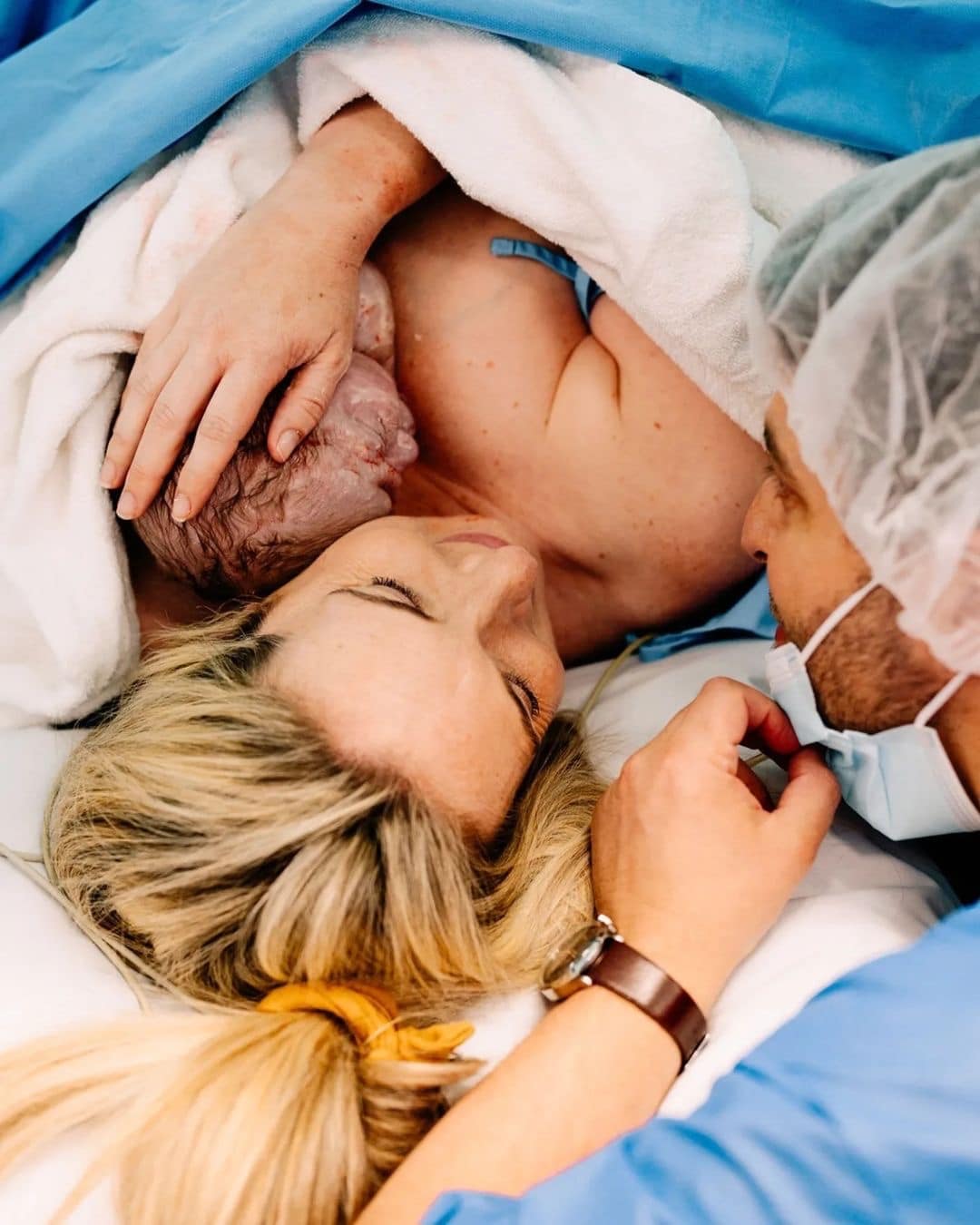
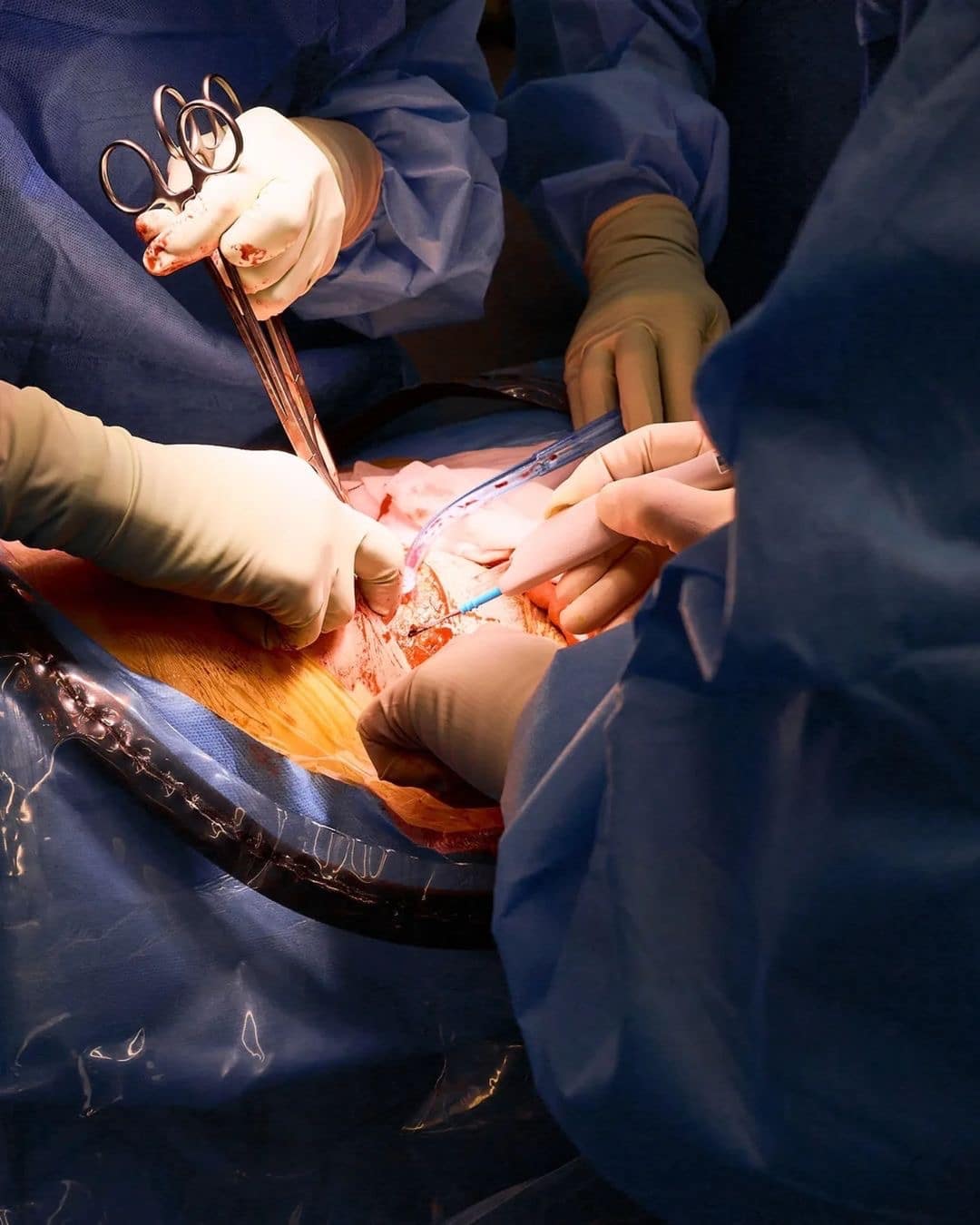
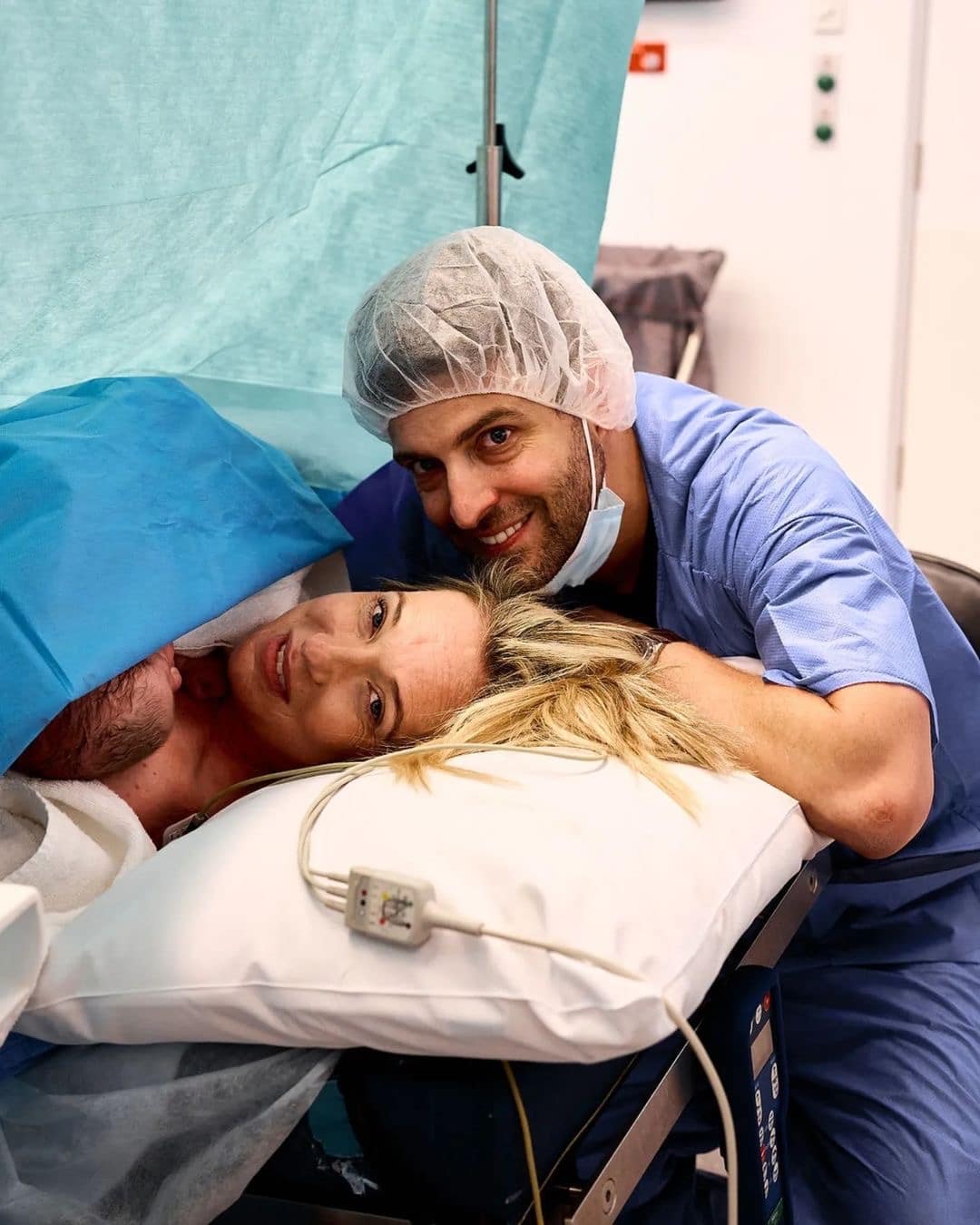
Topics Discussed
CVS, genetic carrier screening, IVF, Maternal-Assisted Caesarean, NIPT, spinal muscular atrophy, TFMR
Episode Sponsor
If you haven’t heard of Kin already, they’re a revolutionary women’s healthcare brand, devoted to helping you take control of your reproductive health.
Whether you’re trying to conceive, already pregnant or going through postpartum, Kin’s got you covered with a range of products that are evidence-based and recommended by dietitians.
Like The Essential Protein to help you meet your protein requirements during pregnancy, and The Postnatal Vitamin to replenish nutrients after giving birth, so you can feel like yourself again.
Visit Kin today and use the code ABSKIN15 at the checkout for 15% off the entire fertility product range today.
Categories
Related Products
-
The Caesarean Birth Class
4 reviews$198.00The empowering online childbirth education program that will help you confidently prepare for birth.
Join the conversation
Sign up to get the latest updates, freebies, podcast releases straight into your inbox
@AustralianBirthStories
Follow along with us
@AustralianBirthStories
Follow along with us
@AustralianBirthStories
Follow along with us
@AustralianBirthStories
Follow along with us
@AustralianBirthStories
Follow along with us
@AustralianBirthStories
Follow along with us
@AustralianBirthStories
Follow along with us
@AustralianBirthStories
Follow along with us
@AustralianBirthStories
Follow along with us
@AustralianBirthStories
Follow along with us
@AustralianBirthStories
Follow along with us
@AustralianBirthStories
Follow along with us

